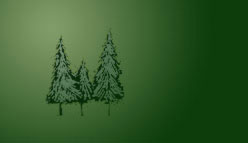|
Reading Group Guide
WHERE THE WATER-DOGS
LAUGHED:
THE STORY OF THE GREAT
BEAR
A Note from the Author
When I completed The Cock's Spur,
the third in my series of novels loosely based on the lives of my 19th-century ancestors in the mountains of Western
North Carolina, I believed my cycle of Appalachian stories was complete and intended to move on to fresh material. But I soon
realized I was not finished after all with the Prices and Curtises of Clay County, and certainly not with Hamby McFee, the
cantankerous former bondsman of the Curtis clan who had figured largely in both The Cock's Spur and Freedom's Altar
but now seemed to demand, in his belligerent way, a fuller and deeper and yes, valedictory treatment.
It is easier to say why I felt compelled
to round out the tale of my forebears than to explain why Hamby insisted on returning.
In the previous three books I had brought the Curtises and Prices together to share an array of adventures, but had
stopped short of the event that, in time, produced me -- the marriage of my grandfather, Will Price, to my grandmother, Lillie
Dell Carter, daughter of Rebecca Curtis, a major character in The Cock's Spur.
To me, the story of how they came together against the implacable opposition of Will's foster father needed to be told,
not simply because of its particular resonance for my own family but also because it testified to the persistence of love
even in the face of great cost, a message that I believe has universal appeal.
But Hamby forced himself on me. He
shouldered his way in, elbowing others aside. In some fashion he has always been
my favorite -- profane and obnoxious, offering to the world an insolence that masks a sensitive soul. Having lost faith in the goodness of man, he gives to beasts the good regard he has learned is usually
wasted on humans. A man of mixed heritage, he has lived most of his life painfully
conscious that he belongs with neither white nor black; he has nursed a hate for the bigotry that plagues him yet, ironically,
has failed to notice that by going his own stubborn way for so long he has, over the course of his life, also won the grudging
respect of many on both sides of the color line. Hamby demanded admittance to
the new book; I suspect he needed to reconcile the contrary impulses of his spirit.
As difficult as it is to account for
Hamby, I am nearly at a loss to explain Yan-e'gwa, the Great Bear. My earlier
books were, with one or two very minor exceptions, relentlessly literal in content; if a spiritual element was present it
was seldom explicit. Yet while reading James Mooney's monumental History,
Myths and Sacred Formulas of the Cherokees I found myself responding powerfully to the legends telling how, in
ancient times, bears evolved from people and how they eventually came to make a covenant with their human relatives to sacrifice
themselves as food in return for the performing of certain sacred ceremonies by a thankful mankind. An idea took form in my imagination of a possibly supernatural bear who comes to enforce the covenant that
men have failed to honor and who, in an effort to save the natural world he deems holy, sets out to stop the massive logging
that is devastating the mountain forests. The environmental theme has always
been close to my heart; but a spiritual figure like Yan-e'gwa is a radical departure for me.
I can only say that he, like Hamby, would not be denied. And of course,
given Hamby's nature, it was inevitable that the fates of these two would entwine.
Other personages sprang up as the book
took shape. The timber titan G.G.M. Weatherby was a necessary foil for Yan-e'gwa;
but beyond providing the requisite villainy he also served to acquaint the reader with certain notions of racial purity once
current among many northern philanthropists, industrialists and missionaries operating in the mountain South in the 1890's. Irish Bill Moore, a character in all three previous books, wished to reappear. So did Oliver Price, my great-great-grandfather.
Tom Carter, Rebecca Curtis's husband from The Cock's Spur, is there. Jimmy
Cartman, Will's abusive foster father, intrudes. New faces emerge -- Cherokee
mixed-blood bear hunter Mordecai Corntassel; a winsome deformed hound named Cattywampus Dog; hard-luck farmer-turned-logger
Rufe Middleton and his ambitious son Absalom; Weatherby's passionate daughter Cassandra, who improbably falls in love with
Absalom.
But the chief theme of Where the
Water-Dogs Laughed is played out in the lives of Hamby, of Weatherby, of Yan-e'gwa the Great Bear and of Will Price and
Lillie Carter. It is the theme of legacy, of heritage. Yan-e'gwa is the inheritor of a tradition rooted in the spiritual, in a reverence for all Creation; his
mission is to redeem a covenant made long ago between beings conscious of a common good, a covenant now forgotten and reviled. Hamby, ex-slave and descendant of slaves, scarred by racism, nourishes a bequest of
bitterness that he longs to purge without knowing how. His search for redemption
and Yan-e'gwa's crusade to save the world from ruin meet and join in a climax that is both a duel to the death and a ceremony
of renewal.
For Weatherby, devastator of Yan-e'gwa's
world, lineage itself is the legacy; he holds it as sacred as Yan-e'gwa does the mountains that Weatherby's timber-cutters
are ravaging. Weatherby wishes to preserve and refine the acquisitive, heedlessly
destructive, supposedly superior breed of man that Yan-e'gwa means to remind of its higher duty. This clash of values sets Weatherby, Ahab-like, on a road of unnatural vengeance against a creature that
seems both an innocent unreasoning brute of the wild and a willful figure of transcendent power.
Young Will, son of the absconded rogue
Ves Price from The Cock's Spur, fears he has inherited the same inconstancy that tainted his father's blood, disqualifying
him from marriage to his beloved Lillie; it is a suspicion his foster father abets.
Will must learn that blood and destiny are not necessarily the same, that if one's prospects in life may be partly
reckoned by descent they may also flow from volition, from choice, from decisions made and hard lessons learned -- from the
quality of the self that each of us shapes in the daily business of living.
Charles F. Price
Questions to Consider:
- What is the legacy left Hamby by his stepfather Daniel McFee? What
is the legacy left him by Rebecca Curtis? How do these bequests differ from Hamby's
heritage as a slave?
- How does Jimmy Cartman use the legacy of Ves Price to shape Will's self-image, and to what purpose?
- What is Lillie Carter's view of parental heritage? In answering, consider
her relation to her departed mother and her understanding of Will's feeling about his father Ves, who abandoned him.
- Is there a shared inheritance among Hamby, Corntassel and Yan-e'gwa? If
so, what is its origin? What does it mean to each?
- How do the destinies of Hamby and Yan-e'gwa come together? What is
achieved when they meet?
- What is Weatherby's conception of the legacy he intends to leave? What
does he hope to achieve in killing Yan-e'gwa? In "purifying" the race? Is there a redeeming motive in his denuding of the forest? If
so, what is it?
- Discuss Will's final conclusion about the reckoning of blood descent? What
does it say about the place of women in the tracing of lineage? How does Irish
Bill's attitude influence Will's conclusion?
- How does the typhoid epidemic affect Irish Bill Moore and his view of the impact of man on the natural world? His views about life and death?
- Does legacy play a role in the relationship between Cassandra and Absalom?
If so, discuss how it influences their destinies.
- Does Cattywampus Dog have relevance to the books' theme? If so, explain.
- Describe Rufe Middleton's attitude toward the forest, his logging operations, and the place of both in his view
of his own personal legacy.
- What does the book say about the responsibility of each person to the self, to others, and to the natural world?
|




